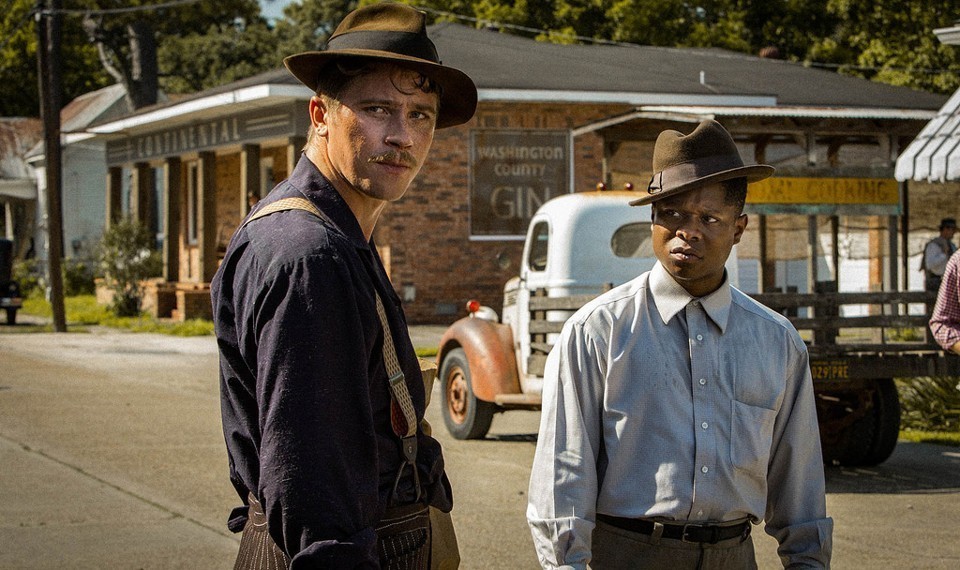
I hate the phrase “instant classic.” For starters—hello?!—oxymoron. Also, only history can decide if something will or won’t be a classic. And yet, something about Dee Rees’ epic Mudbound is so elemental, so deeply humane, so steeped in the soil and sins of the South, that it already feels like a work of great American cinema.
The story is almost simple: Two families, one black and one white, share a farm in the early ’40s south. The white family, while poor, owns the farm. The black family are sharecroppers. They both have young men who go to war. Jamie (Garrett Hedlund) is handsome with a quicksilver charisma. Ronsel (Jason Mitchell) is a devoted son and brother; he bears the extra burden of knowing how much his family needs him on the farm.
The film is narrated, in a kind of sing-song near poetry, by many of the characters, primarily the women. There’s Laura (Carey Mulligan), who was approaching dreaded spinsterhood when she was not quite swept off her feet, but at least rescued, by the solid, unglamorous Henry (Jason Clarke), who is Jamie’s older brother. She envisioned a life of modest, domestic bliss, but Henry surprised her by inheriting a farm—and hardly a thriving one. Constant rain and mud make the crops inconsistent at best, and life on the farm is an endless slog. One light in Laura’s life is Jamie, whom she is secretly in love with.
The matriarch of the black family is Florence (Mary J. Blige), a midwife and paragon of unsentimental strength.
“I didn’t have the luxury of only loving my own children,” she says at one point, when Laura asks her to look after her two daughters. Her husband, Hap (Rob Morgan), doesn’t want her to go, but she knows she must. What’s more, despite the power disparity between them, she and Laura have a relationship built on mutual respect, a sneaky knowledge that women are the true backbones of the farm.
For his part, Henry is not the kind of man who will ever challenge the status quo—including the era’s horrific treatment of black people—but he’s not villainous, per se, just stolid. It’s his father (Jonathan Banks) who is the film’s true monster—racist to the bone, hateful, and misogynist. When he puts on a white hood, it’s chilling, but unsurprising.
When the two sons return from war, everything changes. Both have seen horrible atrocities and come back haunted and diminished. Jamie, in particular, is broken and turning into an alcoholic. But something else has happened to Ronsel: In Europe, he was treated as a liberator, a hero. He even fell in love with a German girl. And he refuses to revert to his role as a second-class citizen, even though he knows it puts his life in danger. Meanwhile, he and Jamie find comfort in each other and become best friends—with Jamie rather defiantly letting Ronsel drive in the front seat of his pickup truck. We watch all of this play out with a slow-burning sense of dread.
The performances, top to bottom, are unfussy, unsentimental and note-perfect. Particular props to Mary J. Blige, who gives such a confident, understated performance, you’d think she was a canny screen veteran. And Garrett Hedlund and Jason Mitchell will absolutely wreck you. If there’s any justice (and there might not be—the film world has yet to reckon with Netflix’s role as a serious studio), this film will win Best Ensemble at this year’s SAG Awards.
On top of everything else, Mudbound is absolutely gorgeous. The cinematography, by Rachel Morrison, itself feels essential, evoking not only the films of George Stevens and Terrence Malick, but the novels of Faulkner and Cormac McCarthy and Alice Walker. To me, it feels right to mention Mudbound in the same breath as these masters. Judge for yourself.
Mudbound is now playing on Netflix.
